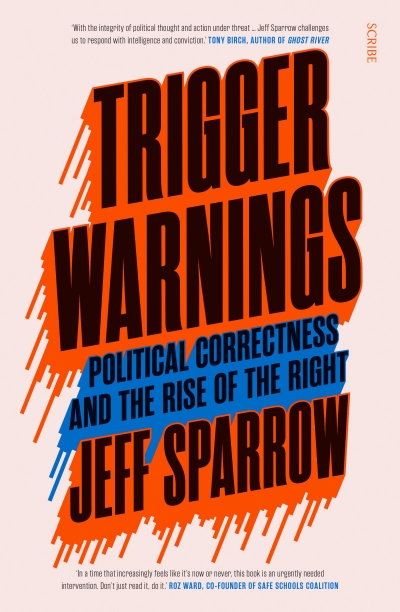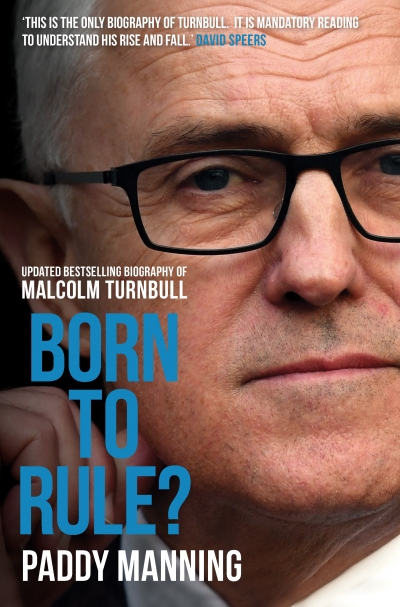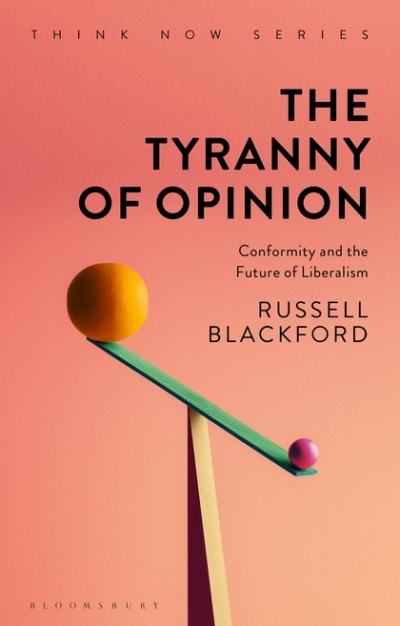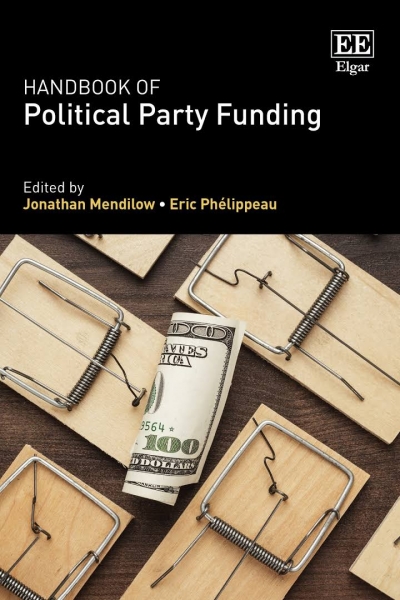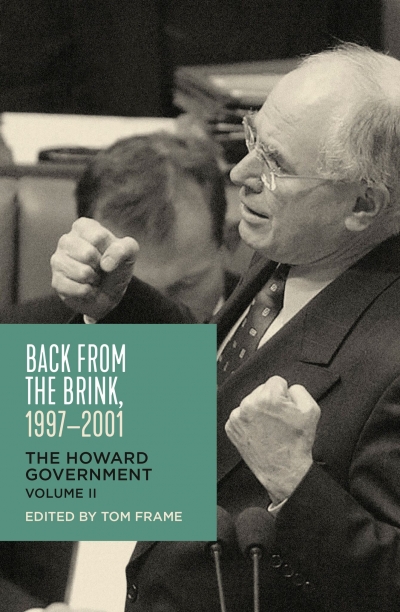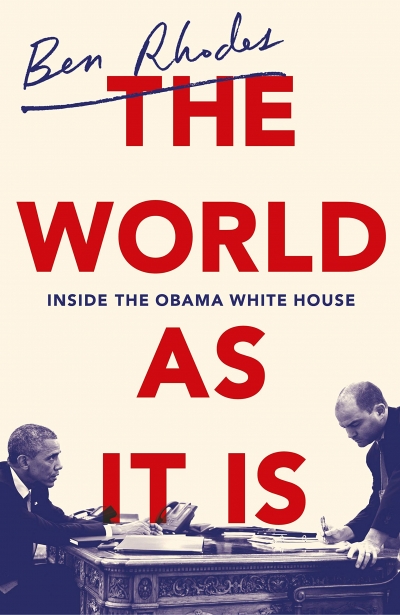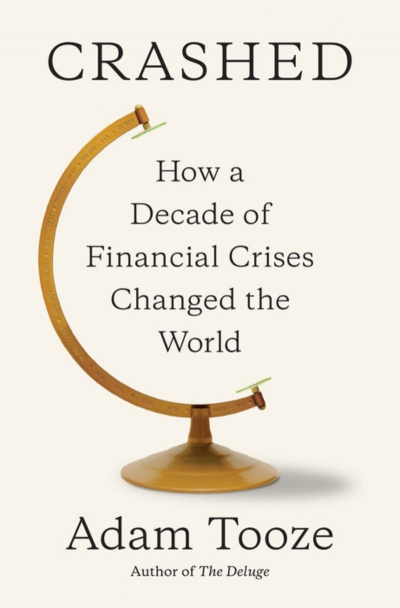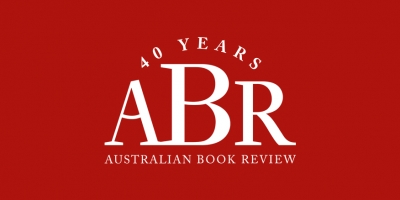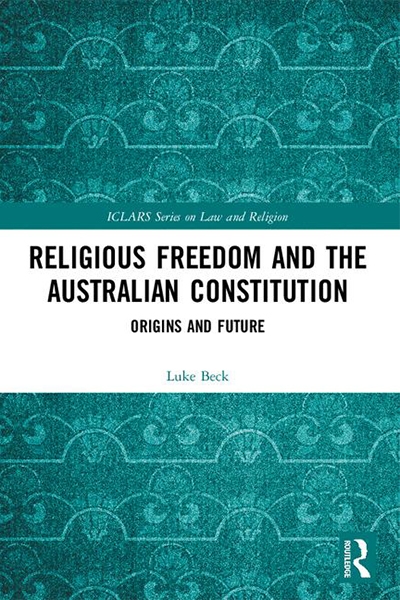Politics
Trigger Warnings: Political correctness and the rise of the right by Jeff Sparrow
Whatever benefits it has brought, aggressive globalisation has also dislocated industries, wrecked communities, and fostered social alienation. Large numbers of working-class, blue-collar, and rural voters (these categories overlap) feel abandoned, anxious, and economically insecure, even when they have ...
... (read more)Future generations of readers will invariably look back in awe at the second decade of twenty-first-century Australian politics for its ridiculous revolving door of prime ministers. Personal and journalistic accounts of this rare instability – Australia had six prime ministers between 2010 and 2018 – have certainly proved a publishing bonanza ...
... (read more)The Tyranny of Opinion: Conformity and the future of liberalism by Russell Blackford
Recently I was speaking with a friend about the impact of the #MeToo movement on gender politics and the implications for male academics. He suggested that there are only two speaking positions for men. The first is as a cheerleader from the sidelines. The second is as a critic, offering challenges or raising questions ...
... (read more)Handbook of Political Party Funding edited by Jonathan Mendilow and Eric Phélippeau
At its best, political science research is empirical, systematic, comparative, and provides cogent and durable explanations – not just descriptions – of political behaviour wherever it is observed. What a pity then that the Handbook of Political Party Funding, for all its strengths in these areas ...
... (read more)Back from the Brink, 1997–2001: The Howard Government Volume II edited by Tom Frame
Back from the Brink is the second volume of a projected four-volume series that investigates the performance of the four Howard governments (1996–2007). The first dealt with the Liberal– National Party coalition’s election in 1996 and their first year in power. The work under review focuses on the period from ...
... (read more)The World As It Is: Inside the Obama White House by Ben Rhodes & Yes We (Still) Can: Politics in the age of Obama, Twitter, and Trump by Dan Pfeiffer
Gareth Evans diagnosed the affliction of leaving government as relevance deprivation syndrome. For those who worked in the Obama administration, leaving the White House must have presented deeper maladies: the bewildering success of a reviled political opponent and a profound sense of missed opportunities. Two recently released memoirs by former Obama staffers grapple with this reality in very different ways.
... (read more)The Empire’s New Clothes: The myth of the Commonwealth by Philip Murphy
When I went to live in London in 1970, the dissolution of the British Empire had yet to reach its final stages. (While Fiji became independent that year, Hong Kong would not be transferred to China till 1997). The Commonwealth seemed like a glorious roseate hue ...
... (read more)Crashed: How a decade of financial crises changed the world by Adam Tooze
In 1996 the pre-eminent political economist Susan Strange published her final book, The Retreat of the State. Strange had dedicated most of her career to studying the ability of the state to tame the power of international finance. The nexus between state and firm had empowered the United States for more than a century ...
... (read more)In October, the Australian research and academic community was angered by the revelation that the former Minister for Education and Training, Senator Simon Birmingham, vetoed eleven Australian Research Council (ARC) grants that had been recommended for funding following a rigorous peer-review process ...
... (read more)The role of religion in public life in Australia has become a prominent issue again as a consequence of the Australian Marriage Law Postal Survey. Significant opposition to the passage of marriage equality in 2017 was due to the mobilisation of many faiths and denominations. The centrality of religion in the marriage equality debate is best demonstrated by the title of the legislation amending the ...


